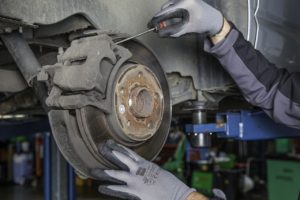Careers in the Automotive & Aviation Industry

Top Jobs in Healthcare - Check out some of the fastest growing jobs
Aircraft and Avionics Equipment Mechanics and Technicians
- Job outlook: 5% increase from 2019-2029 (BLS)
- Average salary: $64,310 per year/$30.92 per hour (BLS)
- Education requirement: Trade School Certificates, Military Training among other education.
Diesel Service Technicians and Mechanics
- Job outlook: 3% increase from 2019-2029 (BLS)
- Average salary: $48,500 per year/$23.32per hour (BLS)
- Education requirement: High school diploma or equivalent
Aerospace Engineering and Operations Technicians
- Job outlook: 3% increase from 2019-2029 (BLS)
- Average salary: $58,350 per year/$28.0per hour (BLS)
- Education requirement: Associates degree
Electro-mechanical technicians
- Job outlook: 4% increase from 2019-2029 (BLS)
- Average salary: $48,730 per year/$23.43 per hour (BLS)
- Education requirement: Postsecondary nondegree award
automotive & aviation occupations
careers within automotive & aviation
The automative & aviation industry has a multitude of opportunities for you. Explore all the paths you can take in this industry or explore some of the top occupations by checking out the top jobs.
diesel service technicians & Mechanics
Diesel service technicians and mechanics inspect, repair, and overhaul buses, trucks, or any vehicle with a diesel engine. They occasionally repair vehicles on roadsides or at worksites. Most diesel technicians work full time, and overtime and evening shifts are common. Although most diesel service technicians and mechanics learn on the job after a high school education, employers are increasingly preferring applicants who have completed postsecondary training programs in diesel engine repair. In addition, industry certification may be important.
Aircraft and Avionics Equipment Mechanics and Technicians
Overall employment of aircraft and avionics equipment mechanics and technicians is projected to grow 5 percent from 2019 to 2029, faster than the average for all occupations. Job opportunities are expected to be good because there will be a need to replace those workers leaving the occupation. Aircraft and avionics equipment mechanics and technicians work in hangars, in repair stations, or on airfields. The environment can be loud because of aircraft engines and equipment. Most aircraft and avionics equipment mechanics and technicians learn their trade at an Federal Aviation Administration (FAA)-approved aviation maintenance technician school or on the job. Some learn through training received in the military.
Aerospace Engineering and Operations Technicians
Employment of aerospace engineering and operations technicians is projected to grow 7 percent from 2019 to 2029, faster than the average for all occupations. Most employment growth for these workers will be in the professional, scientific, and technical services industry. Aerospace engineering and operations technicians operate and maintain equipment used in developing, testing, producing, and sustaining new aircraft and spacecraft. Many employers prefer to hire aerospace engineering and operations technicians who have earned an associate’s degree in engineering technology or who have completed vocational-technical education in computer programming or robotics and machining. Prospective technicians also may earn certificates or diplomas offered by vocational or technical schools. Some aerospace engineering and operations technicians must have security clearances to work on projects related to national defense.
Electro-mechanical Technicians
Employment of electro-mechanical technicians is projected to grow 3 percent from 2019 to 2029, about as fast as the average for all occupations. Electro-mechanical technicians operate, test, and maintain unmanned, automated, robotic, or electromechanical equipment. Electro-mechanical technicians work closely with electrical and mechanical engineers. They work in many industrial environments, including energy, plastics, computer and communications equipment manufacturing, and aerospace.

